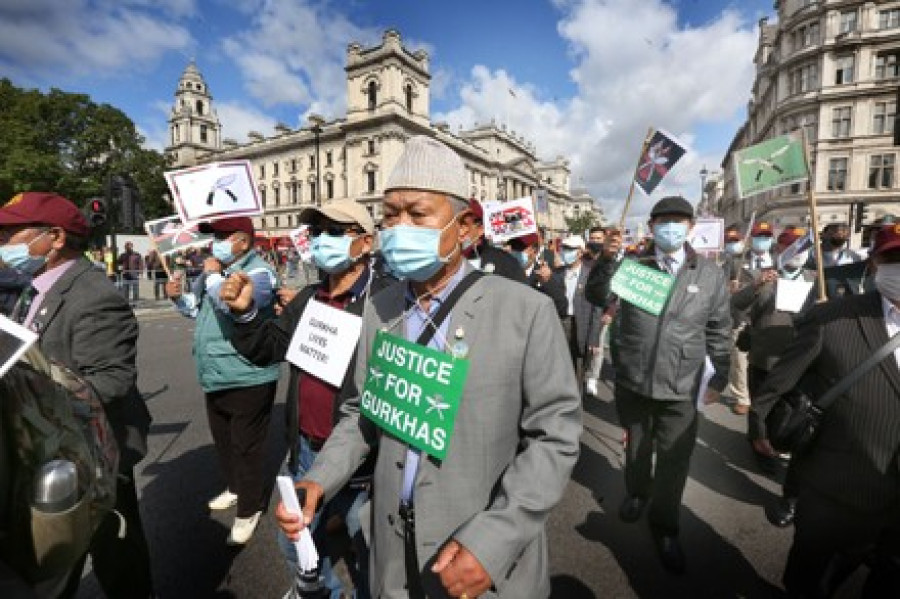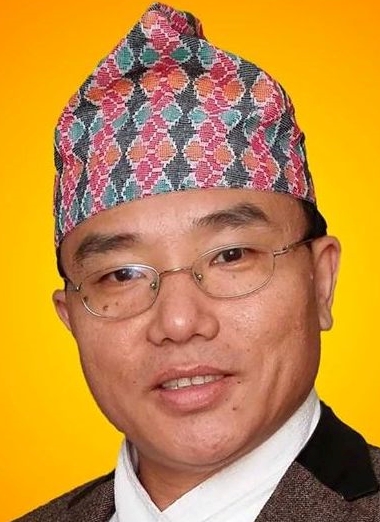Columns
Gurkha justice campaign
Unfortunately, the Gurkhas seem to have ignored the fact that division leads to demise.
Mulbir Rai
The British began recruiting their former adversaries, the Gurkhas into the East India Company Army in mid-1815, even before the Anglo-Nepal War (1814-16) had ended. Since then, the valour of the Gurkha regiments has resonated in every battle, from the Pindari War in 1817 to the recent Operation Herrick in Afghanistan. They have received more than 3,000 bravery medals, including 13 Victoria Crosses, at the cost of over 44,000 lives. Unfortunately, with the end of every war, the friendship abruptly ended unilaterally. The Gurkhas were told: "The war has ended, now you go home." They grinned and left for home virtually empty-handed, leaving thousands of dead fellow Gurkhas behind. Yet, the Gurkhas’ service in the British Army has continued with the same loyalty and courage throughout the centuries.
Ironically, the British, who invariably portrayed the Gurkhas as fearless and peerless soldiers in literature, never made even the slightest effort to translate their own words into practice. It has been over two decades since the Gurkhas began the Gurkha justice campaign, driving a gentle demand for equality in pay and pension. Approximately, 40,000 Gurkhas had joined the movement in the 1990s. The number has dwindled to less than 15,000 now, meaning many Gurkhas have died without getting their pension. More than 70,000 Gurkha offspring are in the Middle East, Malaysia and other Southeast Asian countries, toiling for mere subsistence. Had the British government taken sensible and appropriate action by offering equal pay and perks to the Gurkhas, their offspring would have certainly been in a better position.
Morbid history
For the British government, the demise of many hopeful Gurkha veterans and their offspring's travails could be nothing. As its injustice to the Gurkhas continues, they recall the morbid history of their side. During the Great War, there was not one household in the hills of Nepal which would not have lost at least one family member in the trenches. As the British recruited the best and brightest youths into the British Army, there was massive brain drain among the indigenous groups. As a result, their representation in Nepali politics, administration and bureaucracy has remained ominously empty and dangerously absent.
The Gurkha justice campaign, initiated by the Gurkha Ex-Serviceman Organisation (GAESO) in the early 1990s took well over a decade to pulsate in the British Parliament. The movement began to yield some results after intervention by Liberal Democrat leaders Peter Carroll and Nick Clegg and actor Joanna Lumley. Only then did the British government get serious about the grievances of the campaigners, the GAESO and the British Gurkha Welfare Society. As a result, it announced the settlement rights for the Gurkhas. It was indeed a watershed moment in the history of the Gurkhas in the British Army. However, these Members of Parliament had little or no knowledge that whilst the “historic announcement” was being made in the British Parliament, thousands of veterans were fighting poverty, disease and the injuries they sustained on the battlefield. The "historic announcement" on pensions applied to those who joined the British Army after September 30, 1993.
For the Gurkhas, it was a job half done; hence the campaign continued. One of the campaign groups, the British Gurkha Welfare Society, filed a case with the European Court of Human Rights. The court’s verdict was delivered, but it resembled a foregone conclusion instead of justice following a thorough investigation. Other groups, including the GAESO, and other freshly formed groups pressed on to finish the unfinished business with a 13-point demand. Gyanraj Rai staged the third round of his hunger strike in London.
Staging a hunger strike is not considered to be an effective practice to achieve one's objectives. From the Anglo-Irish War in the early 18th century to the recent insulate Britain campaign, track records show that hunger strikes have little impact as the British government knows how to entice strikers. Governments worldwide have a universal template to deal with hunger strikes: Make a promise first and break it later. Hence, the next move of the British government is almost visible that it will propound its formulaic plan, that is not to seek retrospective amendment in pensions. The letter dated March 17, 2022 sent by Lt Gen Wardlaw, Colonel Commander of the Brigade of Gurkhas, to Major (Retired) Bhimbahadur Gurung, chairman of Regimental Association Nepal, is a cue of the outcome of the upcoming so-called government-to-government talks.
Setting aside theoretical and analytical discourse on how the Gurkhas have to prepare for the justice battle, the most critical and immediate action is to be united unconditionally. It is a no-brainer that “united we stand, divided we fall”. This is the universal truth. Scholars have tested it in politics, psychology, social studies, physics and biology. In fact, it has been examined on clonal integration and its relationship to invasiveness. The study demonstrated the “general performance benefits of clonal integration, at least in the short term, and suggested that clonal integration contributes to the success of clonal plants”. No logic can and will refute this truth.
Equal treatment
Unfortunately, the Gurkhas seem to have ignored the fact that division leads only to demise. We see at least five different Gurkha campaign groups heading to the same destination—justice. Some groups have a louder voice for dignity and integrity than others. They claim that the demand for dignity and integrity will be fulfilled if and only if the Gurkhas are treated equally to their British counterparts. Other groups, too, have the same demand—equal treatment.
It is common to have different opinions, but only a few find a wise way to churn those opinions and produce cream beau ideal. In the Gurkhas’ context, the objective, vision and mission are clear, the direction is straightforward, the paraphernalia is in place, and the vehicle is ready. Furthermore, the setting from which the Gurkhas are launching the assault is oriental, and the position in which the Gurkhas are is subaltern. Therefore, the author strongly believes that the Gurkhas’ unity is “the key” to securing victory over injustice. Jai Gorkhali.




 11.12°C Kathmandu
11.12°C Kathmandu















